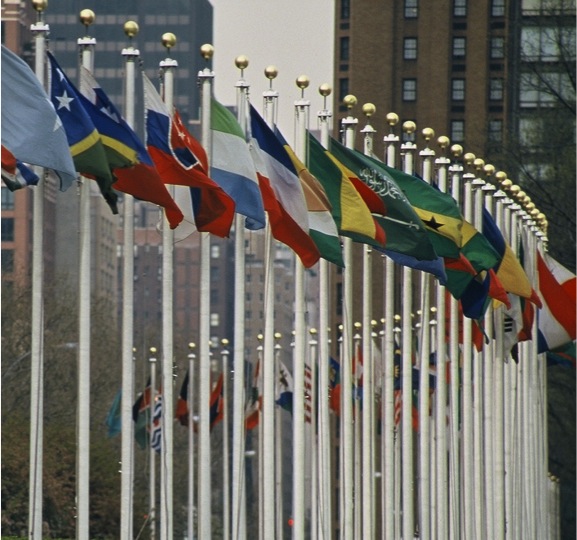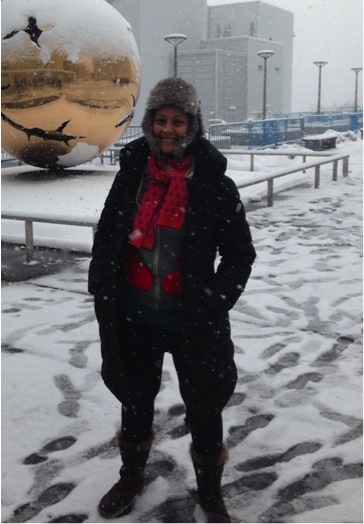-
Advocacy Theme
-
Tags
- Abortion
- Adoption
- Caregiving
- CEDAW
- Disability
- Domestic Violence
- Domestic Workers
- Harassment
- Healthcare
- Housing
- International/Regional Work
- Maintenance
- Media
- Migrant Spouses
- Migrant Workers
- Muslim Law
- National budget
- Parental Leave
- Parenthood
- Polygamy
- Population
- Race and religion
- Sexual Violence
- Sexuality Education
- Single Parents
- Social Support
- Sterilisation
- Women's Charter
AWARE Goes to New York: The CSW (Part 3) – Holding On to That Sense of Purpose
April 24th, 2015 | Gender-based Violence, News, Views
By Leigh Pasqual, Honorary Research Associate for AWARE
This is the third of a three-part series of posts about AWARE’s representation at the recent session of the Commission of the Status of Women (CSW) in New York. You can read the first two parts here: part 1 and part 2.
 The 59th session of the Commission on the Status of Women (CSW59) was held from 9 – 20 March 2015 at the United Nations headquarters in New York. I was excited to attend – after attending as a UN staff member in the past, this time I would be going as an NGO advocate representing AWARE.
The 59th session of the Commission on the Status of Women (CSW59) was held from 9 – 20 March 2015 at the United Nations headquarters in New York. I was excited to attend – after attending as a UN staff member in the past, this time I would be going as an NGO advocate representing AWARE.
CSW59 was special for three reasons. First, it marked the 20th anniversary since the historic Fourth World Conference on Women held in Beijing, when world leaders from 189 countries promised a future where women would be treated equal to men. Second, the Millennium Development Goals expire this year and discussions are in full swing to shape a new global agenda to succeed them – the Sustainable Development Goals (SDGs). Women’s rights advocates are lobbying to ensure that gender equality is a priority issue in this new development framework.
Third, there aren’t any plans by the UN to hold a fifth world conference on women, despite the urging of gender advocates who feel that precisely because of the debate around the SDGs, a fifth world conference would be immensely important to galvanize thinking and action around women’s human rights. While a poor substitute, CSW59 at least offered a global convening platform for member states and advocates to connect on gender equality issues.
The sheer number of activists attending CSW59 – close to 10,000 – and the proliferation of events (more than 450 side and parallel events organised by governments, UN agencies and civil society groups) created a palpable buzz.
At the end of two weeks, I felt a mixture of pessimism and optimism.
The Same Old Story – Strong Rhetoric But Weak Political Will
On the whole, CSW59 was rather disappointing, not just for me, but also many other activists I spoke with. What we heard from governments was the same old rhetoric: e.g. women have made substantial progress in the last two decades in education and health and politics and employment, etc.
But the challenges remain. Progress is too slow. The same tired facts and figures were trotted out. Some statistics showed slight improvements – increases in girls’ enrolment in primary education, access to reproductive health care, participation in political life for instance – but far too many of the same problems remain: persistent and widespread violence against women and girls, high levels of maternal and child mortality, discrimination and exclusion from opportunities and resources (land, assets and livelihoods), etc.
To make matters worse, there appeared to be consensus that the ominous rise in conservatism over the last decade was pushing back gains for women’s human rights in many countries. The attacks on girls’ education, the constant challenges to women’s reproductive rights, the daily acts of violence in both conflict and non-conflict zones – what we are witnessing is no longer just ‘two steps forward, one step back’, but two steps forward, three steps back.
Sadly, as proof of the emptiness of promises made in Beijing and the bloated rhetoric being thrown about, the Political Declaration adopted at CSW59 was a weak, general statement, a stark contrast to the bold, progressive Declaration that came out of Beijing. It was negotiated prior to the meeting, with women’s rights groups completely shut out of the process. Meant to reaffirm the commitments made in Beijing, the watered down 2015 Declaration leaves out critical human rights language, and makes scant reference to countries’ international commitments to and accountability for achieving gender equality. Instead of a collective statement to strengthen action by member states, the document represents a potential loophole for governments to renege on their promises.
In response, almost 1000 women’s rights advocates and organisations signed on to a statement lambasting the Declaration calling it not just ‘bland’ but threatening “a major step backwards’.
My pessimism peaked when Phumzile Mlambo-Ngcuka, Executive Director of UN Women, announced a new campaign, urging all countries to ‘step it up’ for gender equality, to reach ‘Planet 50:50 by 2030’. While I applaud the effort, and the ‘clarion call’ as she put it, I don’t see how we can attain gender parity in just 15 years, given the current absence of political will.
Legacy of Beijing – A Sense of Purpose
Women who were in Beijing in 1995 will tell you that they left the conference with a fire in their bellies, inspired and energised. Twenty years later, despite achievements in many areas, not a single country has yet achieved gender equality. The challenge today is how to keep that hope going strong, with the same fervour and determination, in newer generations of feminists who are carrying on the fight for women’s rights.
This is another reason why activists want a fifth world conference. Just as important as the political outcomes from Beijing was the lobbying, the forming of coalitions and the movement building leading up to the conference that made the event a historic one. It cultivated learning and sharing of experiences, and promoted solidarity and a renewed sense of purpose among those working to end discrimination against women and girls.
This sense of purpose is easy to lose sight of, when progress is so plodding. Thankfully, while it appears to be lacking in our political leadership, it is vibrant in the men and women working to create change in their communities. As I listened to activists, especially younger ones, talk about their work, about how they stand up to discrimination and injustice, about how their lives and others are being improved, I recognised the power in their sense of purpose and their capacity to inspire, mobilise and renew hope.
Betty Lolgisoi, an eloquent young woman from Kenya, spoke about how she stood up to her community and refused to undergo female genital mutilation, causing outrage in her village and resulting in scorn and exclusion for her and her family. With their support, she stuck to her decision: “It was, it is, and it will forever continue to be wrong,” she said. Betty went on to earn a university degree and today is an outspoken advocate on the issue.
Momal Mushtaq from Pakistan, shared her fascinating story too. Growing up, she did not have the freedom that her brothers did; she could not leave the house without a male chaperone. She learned to ride a bike but only within the walls of her home, while her brothers were allowed to roam freely outside. When she got the chance to go to Germany on an internship, her life and outlook changed dramatically. The freedom was exhilarating – she took to riding her bicycle around Germany and even cycled all the way to Belgium. When she returned to Pakistan she started The Freedom Traveller to connect and empower female travellers, especially from countries where freedom of movement for women is restricted.
These two women, Betty and Momal, represented the reason why CSW59 ultimately ended on a positive note for me. They helped me to regain my optimism. As a feminist, listening to these other feminists, especially those that have struggled so much more than I have, and faced so much more discrimination than I have – this is what keeps me going, keeps my sense of purpose in check. I have adopted as my new motto what Momal said at the end of her speech: “I’m burdened with having to promote gender equality my whole life, but also blessed with a purpose.”
Leigh Pasqual is a writer, communications strategist, and women’s rights advocate. She has worked with the United Nations and with nonprofit organisations in the United States, Singapore and other countries. She continues to consult with organisations on a broad range of development issues, and is the founder of a non-profit organisation – Good for Girls – dedicated to empowering girls and supporting their education.




